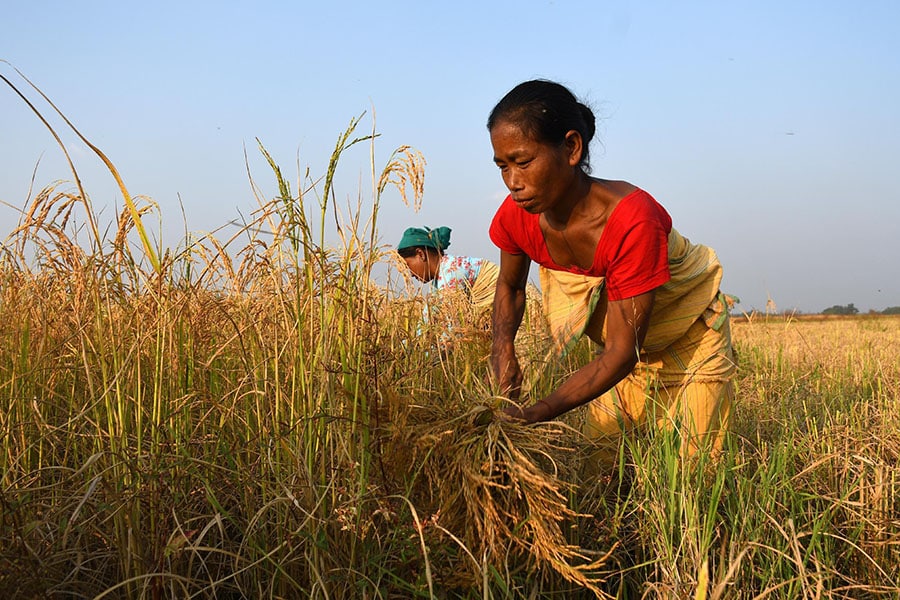
Empowered rural women as silent change agents: Learnings from the Lakhpati Kisan Program of Tata Trust
The empowerment of rural women creates a ripple effect in the village ecosystem. They not only improve their personal lives but also build a transparent and empowering workplace for more women and enhance the living standard of their entire communities
 85 percent of agricultural farmers in India are women, and approximately 86 percent of the farm households are small and marginal farmers.
Image: Anuwar Hazarika/NurPhoto via Getty Images
85 percent of agricultural farmers in India are women, and approximately 86 percent of the farm households are small and marginal farmers.
Image: Anuwar Hazarika/NurPhoto via Getty Images
"The rural woman is the backbone of agriculture and the guardian of household food security. Empowering rural women is empowering humanity." - Kofi Annan
India has made tremendous progress in empowering women over the last few decades. A strong number of women can be seen holding influential positions in various industries and sectors. Women have also made significant contributions to India's economic growth, with increasing numbers participating in the workforce and even starting their own businesses.
When we think of an empowered Indian woman, what do we visualise? Maybe an adult woman living in a city with a job. She earns enough to support her family and herself. She wears the clothes of her choice and enjoys the company of her friends. She lives life on her terms.
But there is also a woman living in a remote village in the tribal belt of central India. She is illiterate and has received no formal business education. Yet, she manages the end-to-end agricultural cycle of 200+ farmer households right from sowing to selling the produce. This woman also earns a stable income to support her family and educate her children. She might not have the similar flexibility of clothing as the urban woman, but she also engages in upgrading her lifestyle from a cycle to a scooter and maybe even a touch screen phone for herself.
85 percent of agricultural farmers in India are women, and approximately 86 percent of the farm households are small and marginal farmers. In recent years, the Indian government has been aggressively promoting the development of this sector through various initiatives, one of the prominent ones being the establishment of Farmer Producer Organizations (FPO). FPOs provide a platform for small and marginal farmers to collectively negotiate better prices for their produce and reduce dependence on intermediaries. They also help farmers access credit, technology, inputs, and other services provided by the government and private sector. By pooling resources and sharing risks, FPOs enable the farmers in improving their livelihoods and increasing their bargaining power.
[This article has been reproduced with permission from SP Jain Institute of Management & Research, Mumbai. Views expressed by authors are personal.]







